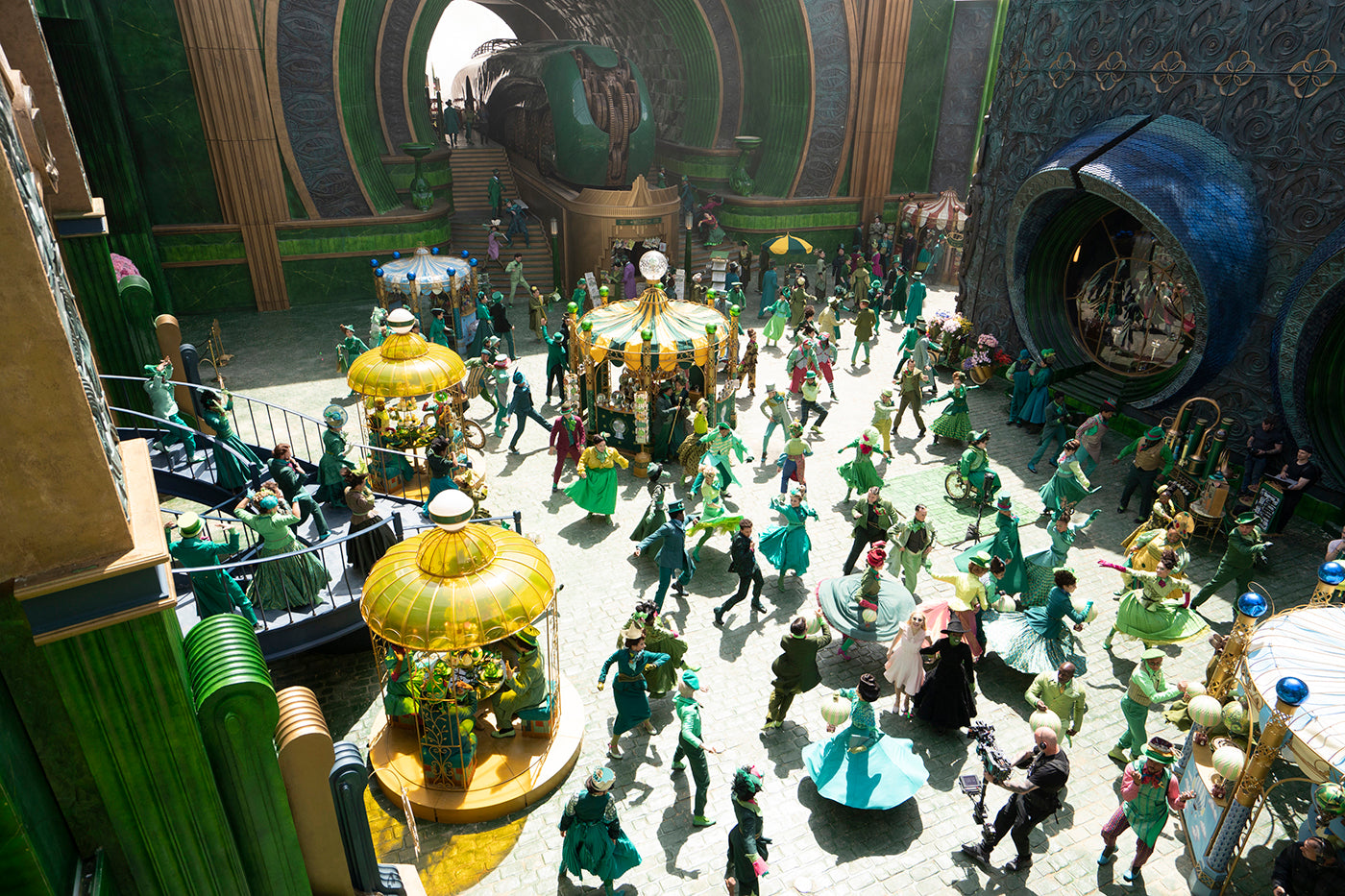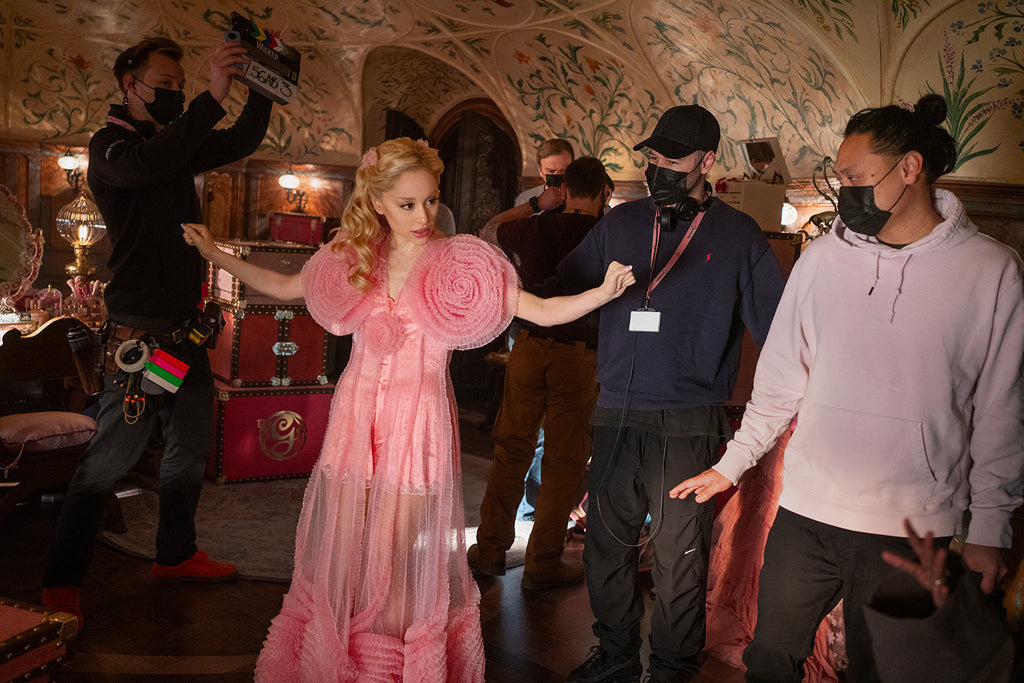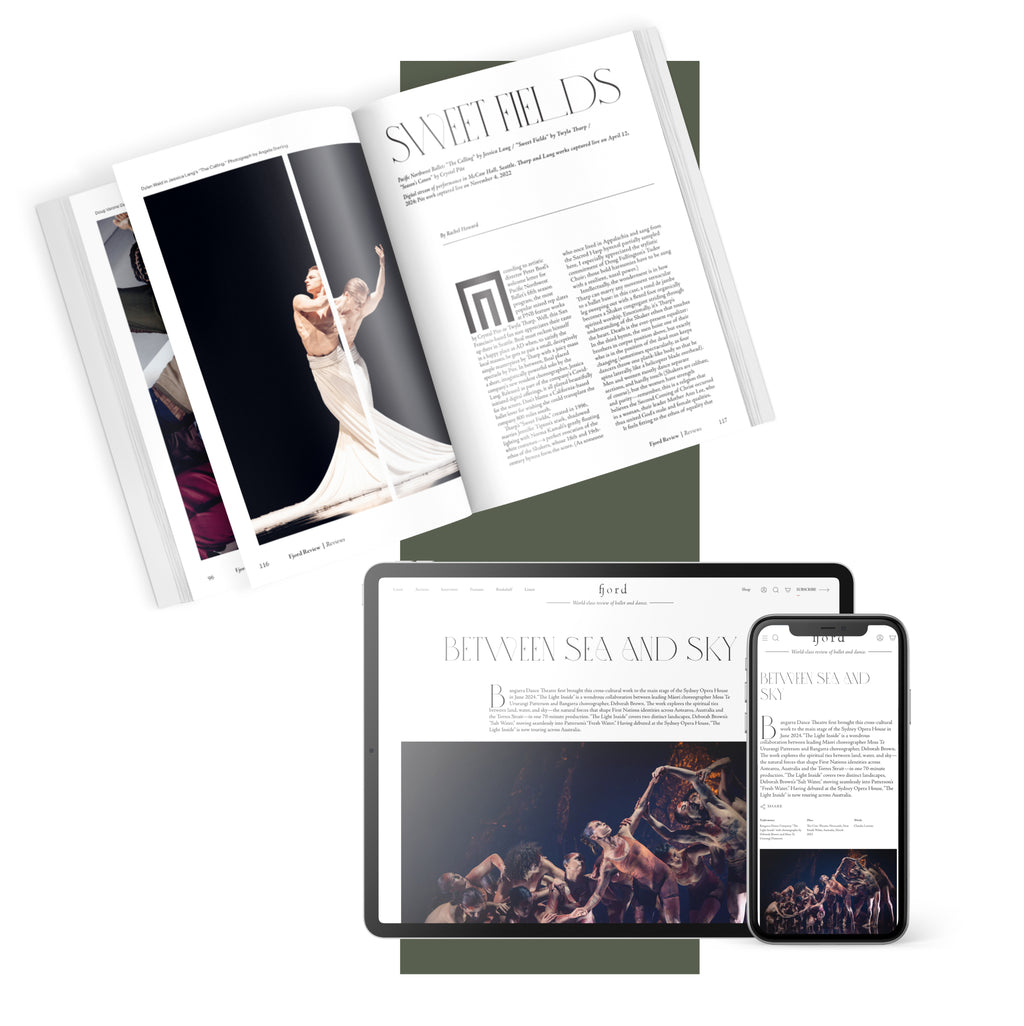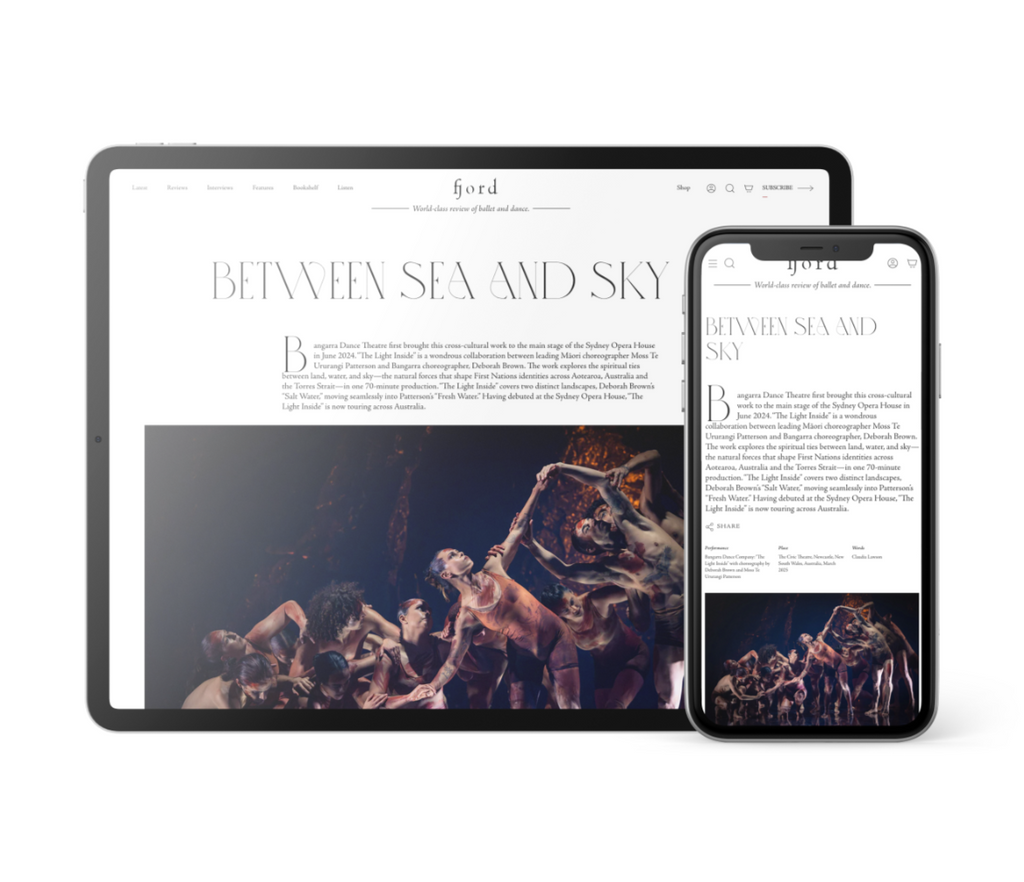Starting pretty broad, what was the process and timeline for creating the choreography of the Ozdust Ballroom scene?
Christopher Scott: I have a background in theater, and as a kid, I would go to theater camp and stuff and I always loved the process that theater implements. Sometimes I like to bring that into the film side of things, just because there’s a lot more exploration and collaboration. I started creating choreography on a day that we were rehearsing something else. Everybody was behind me. It was the whole skeleton of like, 20 dancers in a giant studio space. I came with a bunch of moves, and I didn't really love them from the beginning, but I was like, I have to get it started. It wasn't about making Elphaba a bad dancer. It was about making her different. That was the theme. And you have Cynthia Erivo, a phenomenal dancer, and we didn’t want to completely ignore that. I've had a lot of talks with Cynthia about her character and how she wanted to play it and one of the things that stood out to me was when she's like, ‘My character comes from wealth, and I think it's important for us to lean into that a bit more.’ It's not that she’s poor and everybody's rich. They’re judging her based on the color of her skin, and that's a very specific judgment that we're leaning into.
Then I got home that night, and I knew I had Cynthia the next day for the first time. I didn't love the movement already. It wasn't the right environment to create. I called my associate choreographer, Comfort Fedoke, and I'm like, ‘Hey, are you down to come to the house? Let's build a couple of things.’ So, Comfort comes over. It's like 10 o'clock at night, we had a whole day of rehearsal, but we knew that this was one of the, if not the most important, moments to crack and shape. There's a point when Comfort put her hand here, [he raises his hand to the side of his head] And I was like, ‘Oh, I love it.’ And I was like, ‘Twinkle your fingers.’ She did that and it felt like a bird. If she [Elphaba] is gonna dance a certain way, I think her biggest influence should be animals because they're the ones who love her. They're the ones who raised her, essentially, They're her close connection. It was like this magical moment at midnight. Cynthia walks into the room the next day and we just start showing her the moves. It's a lot to take in, because, again, this is a big moment for her, and we're building a language that she's going to have to speak. It’s basically like writing a little script with her. We don't even have music to guide us. There are no lyrics. She started working through the moves and we just started adapting as we went. Then there was a moment where Cynthia was like, ‘Can I try something?’ She puts on a song, and it's not the song you would expect. And she starts to do it to that. It helped build musicality that we didn't have from the acapella thing. It gave it a rhythm. Then there was a point where she's like, ‘Okay, I think I'm good. I don't need the music anymore.’ It always felt like we were building it. It never felt like it was locked in because we'll change it. If she feels something in the moment, we're going to change it. I'll never forget the first time Cynthia picked up the hat. When she put it on, everything in her body changed. We don't see it in the movie, but this is the moment she starts swaying her shoulders. Comfort and I were just like, ‘Oh, something has changed within her.’ We can see it. They're one now.












comments